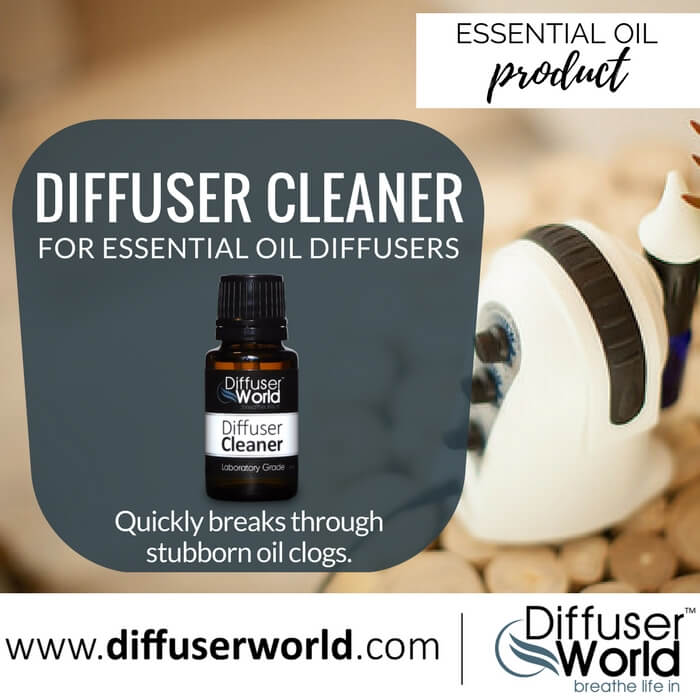Bug Off Essential Oil Blend

Bugs and pests certainly have their purpose in the world, but they can also be extremely annoying, and even hazardous to our health, as some are major carriers of disease. Mosquitoes can spread West Nile virus, Zika fever and a number of other scary diseases, while flies are known to transfer more than 100 pathogens that can result in illness, including cholera, typhoid, tuberculosis, and dysentery.
Many people turn to chemical sprays to get rid of them. Unfortunately, in addition to having a very unpleasant, strong odor that is really not meant to be anywhere close to your nose, conventional insect repellents can harm people who have serious allergies, and even cause health issues in those that don’t, not to mention the harmful effects to the planet we live on.
One chemical found in many of those repellents is DEET, a well-known ingredient that was developed by the US Army during World War II for repelling chiggers, mosquitoes, ticks, fleas and some types of flies like deer flies and black flies. While it’s been around for decades now, there are some serious concerns about its safety.
While the Environmental Protection Agency (EPA) re-approved its use in the late 1990s, more recent data has suggested that it may negatively affect our health. A 2009 study published in the journal BMC Biology showed that DEET can interfere with vital nervous system enzymes. The researchers discovered that the chemical blocked the enzyme cholinesterase, which is necessary for transmitting messages from the brain to the muscles in insects. The researchers noted that it may affect the nervous systems of mammals as well. Chemicals that interfere with the action of cholinesterase can cause excessive salivation and watery eyes in low doses, followed by muscle spasms and ultimately even death.
How To Bug Proof Your Home
You can keep an assortment of bugs and pests from entering your home by taking the following actions:
- Keep your house as clean as possible: be sure to take out the garbage every day, wipe up spills immediately and wash dishes as they’re dirtied. Sweep and vacuum floors regularly. Avoid clutter, including things like stacked magazines and newspapers as bugs, like cockroaches, love the smell of paper and can easily congregate there.
- Keep your bathrooms and kitchen as dry as possible. Wet areas serve as both breeding grounds and drinking fountains. If you have leaky pipes, call a plumber.
- Store firewood at least 20 feet away from your home as it frequently houses insects like ants and termites.
- Watch out for standing water, which is a breeding ground for mosquitoes. Tree houses, fire pits, play sets and other items that catch and hold water should be tipped regularly.
- Seal cracks and crevices like cupboards, sinks, and baseboards with silicone caulk. Windows, vents, pipes, chimneys and roof shingles are just some of the areas pests can sneak through.
Of course, no matter how clean and well-sealed your home is, some critters are bound to make their way in. And, what about your yard and garden? Those areas are totally exposed. That’s where essential oils come in. Bugs don’t like essential oils, but of course, depending on the type of critters you want to keep away, certain oils work better than others.
5 Best Essential Oils To Keep Bugs, Insects, and Pests Away
These are the best essential oils for repelling those pests, as well as the creatures they’re most effective at battling.
1. Lemongrass Essential Oil
Lemongrass offers antifungal, insecticidal, antiseptic, and anti-inflammatory properties that make it a great essential oil to have on hand as it has so many uses. It can kill bacteria externally, relieve muscle pain and body aches and ward off insects among other things. It’s especially good for repelling fleas, flies, and mosquitoes.
Insects can’t stand the smell of lemongrass, which means that it’s especially good for keeping them out of your home. One of the best ways to take advantage of it is to heat up about a half cup of water and add in about 20 to 25 drops of lemongrass oil. Put it all in a spray bottle and spray all of your doors, windows, and infested surfaces. You can also use it to get rid of those awful fruit flies that easily get into your home since they’re so tiny – making their way even through those teensy spaces in the mesh of window and door screens. The reason they seem to come in endless numbers is because they can lay as many as 500 eggs at a time on rotting food, ripened fruits, damp rags and other common kitchen items. Spritz the solution generously anywhere you see them, like counters, your refrigerator, walls, cabinets, and so on. If you use it every day it will help keep them from coming back too.
Not only does this mixture re[el flies in a very effective way, but it also will make your home smell good and give it an aroma with a hint of fresh citrus.
2. Peppermint Essential Oil
The minty clean aroma of peppermint essential oil is so much better than that icky chemical smell, and it also serves as a natural insecticide that kills and repels mosquitoes, ants, fleas, beetles, spiders, flies and even mice. A study published in the Malaria Journal showed why it’s so effective – the researchers found that it offered repellent action when applied to exposed body parts. It also showed significant larvacidal and mosquito repellent action, with mosquito larvae killed 24 hours after exposure to a solution of peppermint oil and water.
There are a number of ways to use peppermint oil as a repellent. While we find the smell of it to be pleasant and refreshing, many insects and mice find it offensive. Simply dab some peppermint oil onto cotton balls or cotton pads, and place them strategically around your home, particularly where you might find these creatures, or places they may be hiding, like the backs of cabinets and under sinks. Another option is to make a peppermint spray by adding about five drops of the essential oil to water in a spray bottle and spray it around your house. You can also use it in your garden to get rid of aphids.
3. Eucalyptus Essential Oil
The eucalyptus tree is an evergreen tree native to Australia, and many associate it as the main food source of koala bears. While it does offer outstanding nutritional support for wildlife, the essential oils extracted from its leaves also offer powerful medicinal properties – you’ve probably seen it used in products like chest rubs, sore throat sprays, and cough medications. But did you know that it can also be used as an insecticide? In fact, research has shown that eucalyptus essential oil can be more effective against sand flies than all other natural products.
Eucalyptus is effective as it not only has a strong aroma, as it’s unfamiliar, it’s often perceived as being hazardous. Scale insects like mites, aphids, earwigs and whiteflies are killed on contact with eucalyptus oil. If you’re dealing with these pests, combine a teaspoon of eucalyptus oil with a half-teaspoon liquid dish detergent and two cups of water in a spray bottle. Shake it well and then apply to your plants, repeating once every three days until the infestation is gone.
To use as an indoor repellent, add one-quarter teaspoon eucalyptus oil to a cup of water in a spray bottle, shaking well before each use as the oil will separate from the water. As before, re-apply every three days until the problem is eradicated.
4. Tea Tree Essential Oil
If you don’t have a bottle of tea tree essential oil in your home right now, it’s definitely need one. Its wonders truly never cease. It’s antibiotic, antifungal, antiseptic, expectorant and antiviral. While it’s famous as a green cleaning powerhouse and often used to inhibit viral and bacterial infections, it can also be used to kill insects as it has antiparasitic properties to which make it capable of destroying or suppressing the growth of parasites like fleas, leeches, lice, and ticks. Plus it can repel mosquitoes, ants, spiders and more.
You can use it as an alternative to peppermint oil by dousing a cotton ball and placing it in areas throughout your house to keep insects away, or mix a few drops in a spray bottle with water and spray it across your body to prevent mosquitoes from coming near you. Apply it evenly over your body, and you’ll not only drive away mosquitoes, but it can often have the same effect on other biting insects.
If you have garbage cans outside, they can be a major attraction for flies, which can get into your house and your garden. You can repel them with tea tree oil too. Simply sponge the sides of the upper portions of your garbage cans with some tea tree oil and those flies will “magically” disappear.
For a minor bed bug infestation, you may be able to use tea tree oil to fight it off before it gets out of hand. Dilute 20 drops of tea tree oil in a spray bottle with water and then thoroughly spray affected furnishings. Getting under, around and on all areas of an affected mattresses in addition to washing linen in the hottest water possible.
5. Lavender Essential Oil
Most of us associate the floral aroma of lavender with soaps, relaxation, and calm, but surprisingly, it can also be used as an effective way to battle bugs. In fact, lavender essential oil has been used as a bug repellent for centuries, often utilized to protect clothes and linens from the infestation of moths and other insects. It helps to control an infestation of black beetles, flies, fleas and can even help one from being bitten by mosquitoes and other biting insects. If you are bitten, you can use the oil to prevent the spread of infection caused by a bite as well as to control the inflammation and itching that’s typically associated with it.
Mix a few drops with a carrier oil like sunflower oil in a spray bottle and spray it onto exposed skin to repel bugs. You can also place lavender sachets in cabinets and chests of drawers and to keep away moths and other bugs while leaving a fresh scent. Add it to an atomizing essential oil diffuser to help keep away ants and other insects while disinfecting the air.
Bug Off Essential Oil Diffuser Blend
- 4 Parts Lemon Oil
- 4 Parts Eucalyptus Oil
- 2 Parts Peppermint Oil
Mix together and diffuse in your essential oil diffuser or mix with a carrier oil to make a rub on lotion.
Featured Diffuser
The diffuser featured in this article is the Aroma-Express™ Essential Oil Atomizing Diffuser.
The Aroma-Express™ is a handy mug-sized atomizing diffuser. Cold-air diffusion disperses the essential oils into the air on a molecular level, allowing the molecules to be bio-available. Oils are not damaged by HEAT or WATER. Portability is a breeze with rechargeable batteries and a USB cable. Multiple digital timer options put you in control of the oil and aroma output. Included is an AC power adapter, batteries (NiMh), wall plug, and USB cable. So, take the Aroma-Express on the road, to your office, to your hotel, or on a cruise for aromatherapy everywhere. One year warranty.
The Aroma-Express Features:
- Patented Advanced Cold Air Diffusion Technology
- Holds 15 ml Essential Oil Bottles
- Digital Timer with Multiple Intermittent Selections \
- Quiet, Portable, and Self-Contained
- Polypropylene Casing
- Electric Power with Rechargeable Battery
- Innovative & Modern Design
- Micro-Fine Vapor Reaches Over 600 Square Feet
- Universal USB Wire for Use in any Country
- Battery will Run 6 Hours on Maximum and 12 Hours on Intermittent
- International Plug Voltage 100V-240V
Source: http://www.naturallivingideas.com/essential-oils-to-repel-bugs-pests/
Editor’s Note/Disclaimer: The information in this article is not a substitute for professional medical advice, diagnosis, or treatment. Always seek the advice of a physician or other qualified health provider with any questions you may have regarding a medical condition and before undertaking any diet, supplement, fitness, or other health programs. Diffuser World and the ownership of Diffuser World will make no specific medical claim or provide any medical advice. Articles contributed to this platform may be provided by third parties and do not necessarily represent the opinions or beliefs of any Diffuser World representative or the ownership of Diffuser World. Please seek out a medical professional or veterinary professional regarding any questions you may have about the use of any products sold by Diffuser World.





